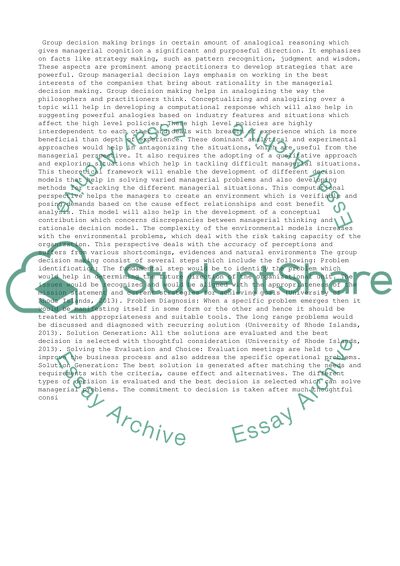Cite this document
(“Outline the distinctive properties of group decision-making and Essay”, n.d.)
Outline the distinctive properties of group decision-making and Essay. Retrieved from https://studentshare.org/management/1482834-outline-the-distinctive-properties-of-group
Outline the distinctive properties of group decision-making and Essay. Retrieved from https://studentshare.org/management/1482834-outline-the-distinctive-properties-of-group
(Outline the Distinctive Properties of Group Decision-Making and Essay)
Outline the Distinctive Properties of Group Decision-Making and Essay. https://studentshare.org/management/1482834-outline-the-distinctive-properties-of-group.
Outline the Distinctive Properties of Group Decision-Making and Essay. https://studentshare.org/management/1482834-outline-the-distinctive-properties-of-group.
“Outline the Distinctive Properties of Group Decision-Making and Essay”, n.d. https://studentshare.org/management/1482834-outline-the-distinctive-properties-of-group.


